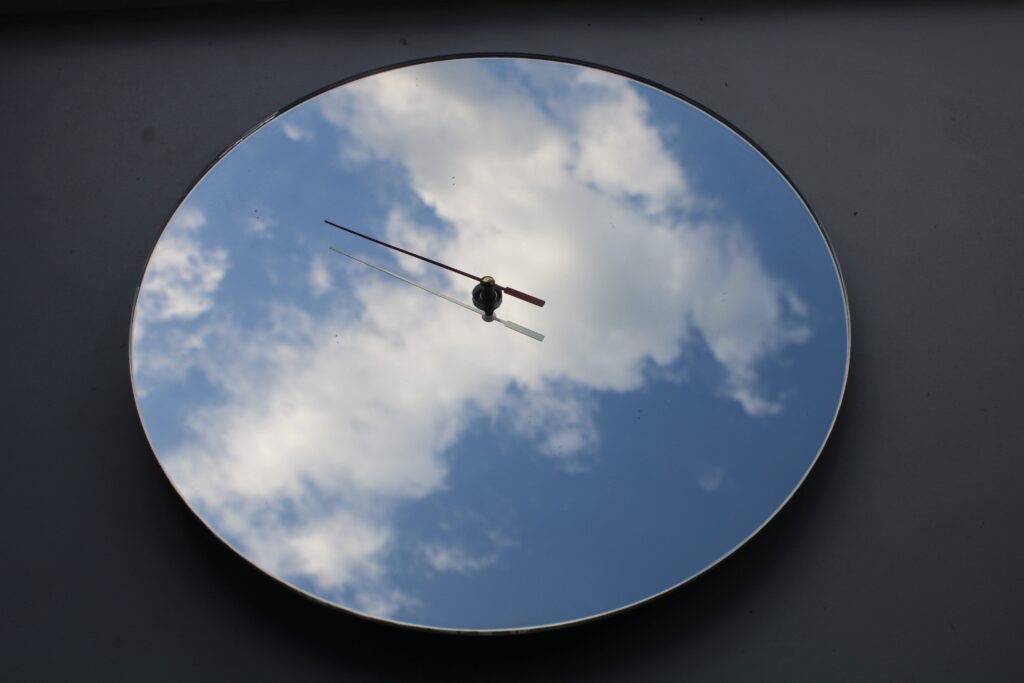< >

Orientation – Dis, Installation, 2019, Sammlerfamilie
Orientation – Dis
Orientation – Dis it consists of a clock mechanism placed behind a round mirror disc. However, the clock mechanism is unusual in that it only has a second hand, without the usual hour and minute hands. This decision means that the clock loses its traditional function of displaying time, and instead, the second hand becomes a directional pointer.
This installation plays with concepts of time, perception, and reflection in various ways. By placing the clock mechanism behind a mirror disc, the artwork becomes a visual and metaphorical experience. The mirror disc creates a spatial illusion and prompts the viewer to contemplate the nature of space and reality.
The absence of the usual hour and minute hands subverts the viewer’s expectations and leads to a disconnection from the usual functionality of a clock. The second hand, which normally serves to measure time in discrete units, instead becomes a directional pointer. This transformation draws attention to the movement itself and invites the viewer to question the significance of time and movement.
This work could be interpreted as a commentary on the transience and relativity of time. By losing its conventional function, the clock invites the viewer to no longer consider time as a linear construct but as a subjective experience. The second hand as a directional pointer encourages reflection on the orientation and trajectory of our own lives, while the mirror disc stimulates reflection on our own existence and perception. Placing the clockwork and mirror horizontally adds another layer of complexity and intrigue to the artwork. Horizontally positioning the clockwork and mirror alters the viewer’s perspective and relationship with the piece. Unlike a traditional clock mounted on a wall or standing upright, the horizontal orientation challenges conventional notions of timekeeping and spatial orientation.
The horizontal orientation may evoke a sense of suspension or disorientation. It creates a visual tension that amplifies the conceptual depth of the installation. Viewers may find themselves drawn into a contemplative state as they navigate the interplay between the reflective surface of the mirror and the rhythmic movement of the clock’s second hand.